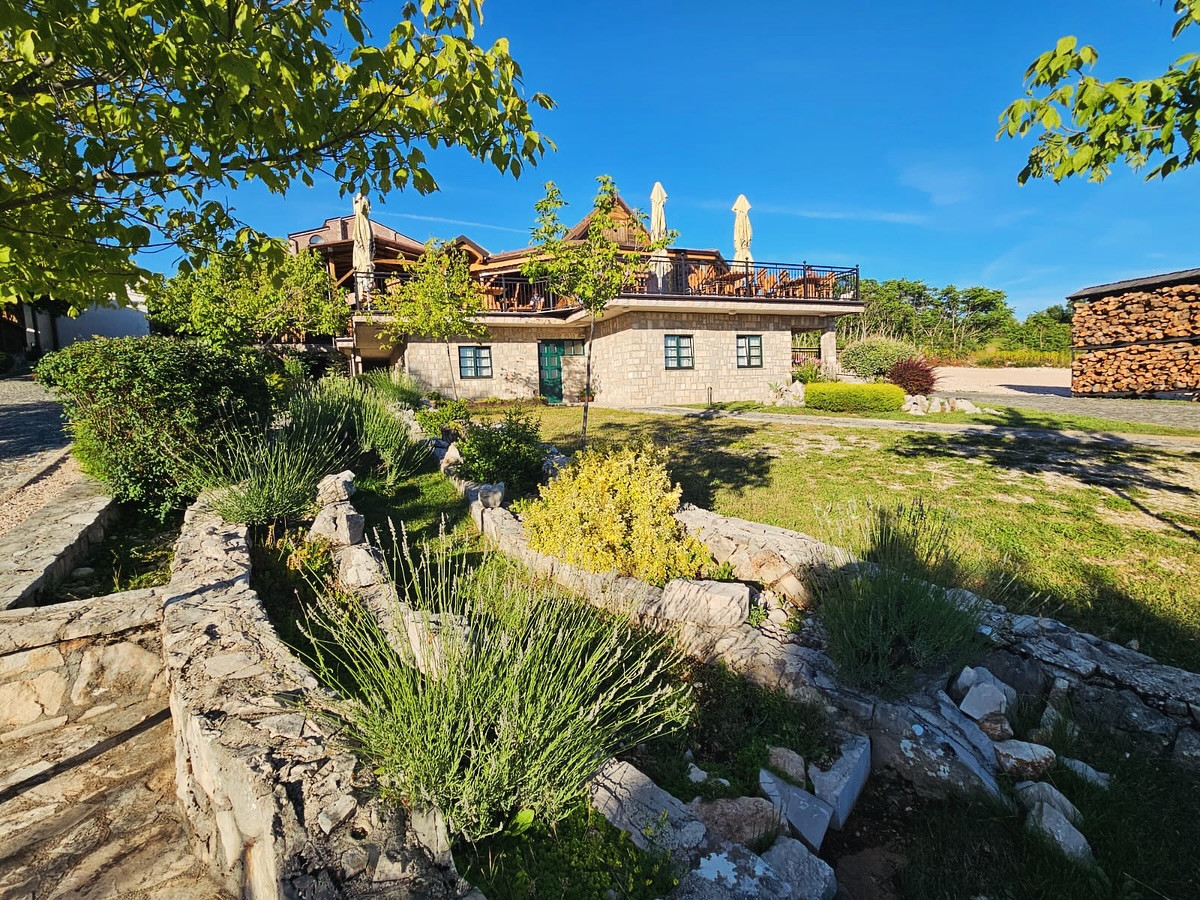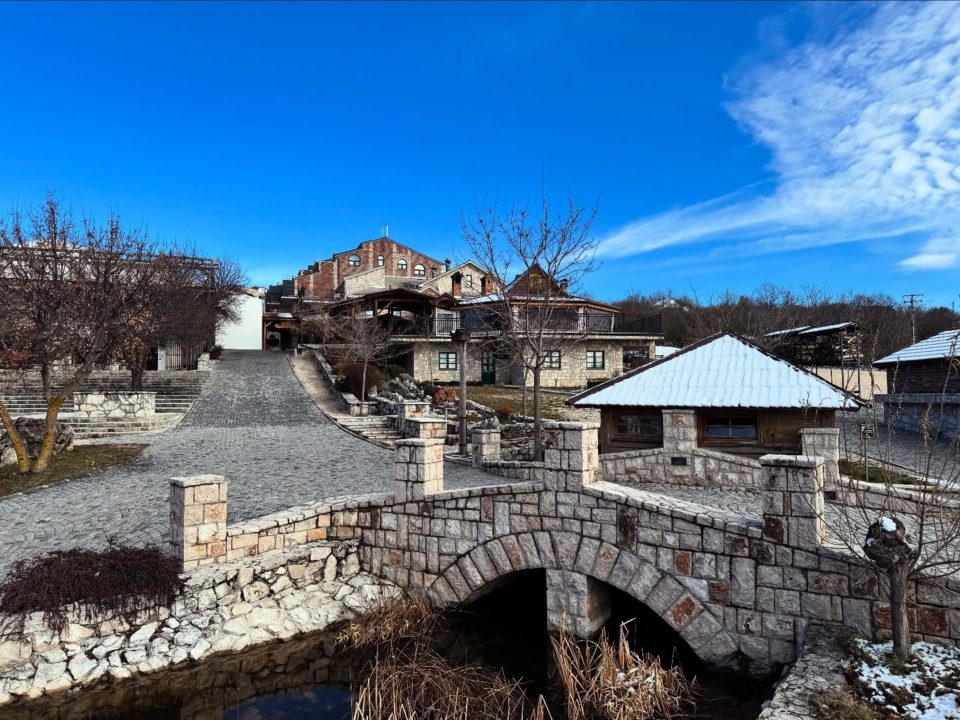
Lake Buško is the largest reservoir in Europe, located on what is often called the tri-border of Bosnia, Dalmatia, and Herzegovina.
It is situated in the Livno Canton, with a smaller portion in the town of Livno and a somewhat larger portion in the town of Tomislavgrad. The lake is a popular fishing destination, visited by numerous fishermen from across Bosnia and Herzegovina, as well as Croatia. Its fine-sand beaches also attract tourism and are particularly suitable for families with children. On the shores of the lake is the Grabovica Eco-Village, considered “the pearl of the Herzegovina region,” where nature, tradition, and luxury exist in harmony.
With 35 carefully arranged accommodation units, including traditional log cabins, rooms, and apartments, the facilities are constructed mainly of natural materials like stone, wood, and clay. This gives the village an authentic ambience without sacrificing comfort. Accommodations are equipped with heating, internet, and private terraces offering views of the lake and surrounding forest. The spa center, with its jacuzzi, sauna, salt room, and various massage packages, provides even more opportunities for relaxation and enjoyment.
A Mix of Tradition and Nature
In the dining center of the eco-village, there is a restaurant and tavern, a wooden ethno-house, and a terrace with seating overlooking Lake Buško. The diverse culinary selections include pies and cicvara —a dish made of corn flour and local cheeses— as well as lamb and veal “under the bell,” and traditional Livno cheese. You can also sample homemade honey, brandy, cheese, and dried meats. As their chefs claim, they “can satisfy even the most demanding palate.”
The Grabovica Eco-Village is more than an escape from the hustle and bustle of everyday life, or a pitstop on the road to Croatia, about ten kilometers from the Kamensko border crossing. It is also an opportunity for an active vacation in nature. They offer horse riding activities, including guided tours through mountain trails and meadows, corral riding, and therapeutic riding adapted for those with special needs. You can ride quads and mountain bikes if you’re an adrenaline junkie, or go Nordic walking and hiking in organized tours.

You can also visit the mini zoo, which is home to both domesticated and wild animals, including roe deer, deer, horses, peacocks, wild boars, donkeys, ponies, rabbits, and various feathered friends. The mini zoo is an ideal place for children to learn, get to know the animal kingdom, and nurture social responsibility and sensitivity. Children can also enjoy the outdoor children’s playroom and sports fields.
On weekends, the village hosts evenings of traditional music and dance, enhancing the atmosphere of community and local spirit.
Eco-Friendly Approach
The founders of the Grabovica Eco-Village have been concerned with nature preservation from the beginning. With solar panels, waste recycling, an organic food garden, and sustainability education for guests, Grabovica is a shining example of modern ecotourism in the region.
“Our goal is not just to offer accommodation, but the experience of living in harmony with nature,” said one eco-village host, adding, “we want guests to leave this place richer – not only with memories, but also with the knowledge of how to live simply, but with quality.”
When asked why they come to the Grabovica Eco-village, guests say that it’s a place where people can reconnect with themselves. Without noise or stress, surrounded by untouched nature, and with hospitable hosts, the village offers a true escape from everyday life. It is an ideal destination for couples, families, hikers, cyclists, and all those who want to connect with themselves, nature, and the cultural heritage of this region.






